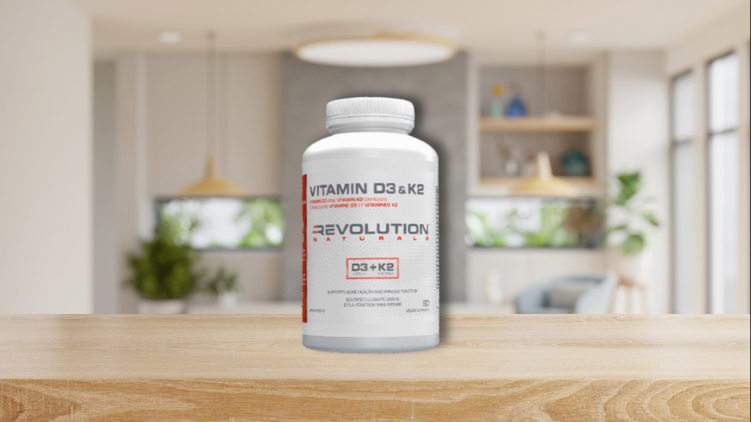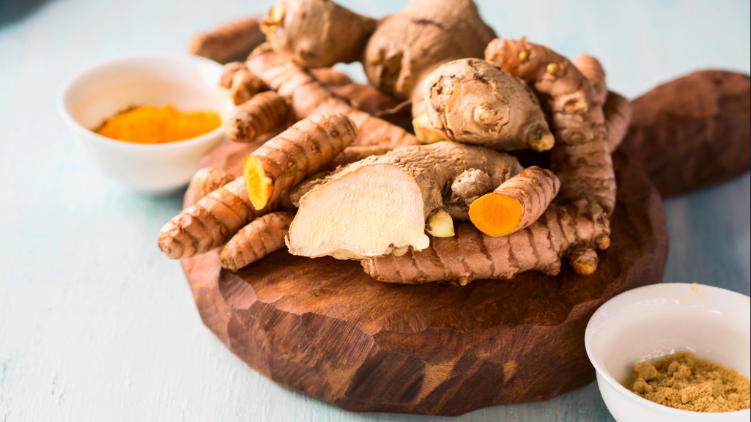Welcome



Managing Arthritis can feel like an uphill battle, but the right nutrition can be a game-changer in your journey toward relief. Inflammation and joint pain affect millions, making it essential to prioritize what you eat. This guide reveals the 10 must-have nutrients your joints can’t afford to miss; nutrients that fight inflammation, repair cartilage, and keep your bones strong. Whether Arthritis is new to you or something you’ve battled for years, the way you fuel your body could decide how much mobility and comfort you keep. Don’t let poor nutrition hold you back when simple changes could mean less pain and a more active, fulfilling life.
Understanding Arthritis: Types and Symptoms
Arthritis encompasses a range of conditions characterized by inflammation and joint pain. Arthritis isn't just one condition—it comes in various forms, and understanding the differences matters. OsteoArthritis slowly wears down cartilage, rheumatoid Arthritis turns your immune system against your joints, psoriatic Arthritis adds painful swelling linked to psoriasis, and gout strikes with sharp attacks from uric acid buildup. Ignore these distinctions, and you risk missing the warning signs that could save your joints from lasting damage.
Arthritis manifests in various ways, including pain, stiffness, swelling, and joints that no longer move as they once did. These symptoms can significantly impact daily activities, making simple tasks challenging and reducing overall quality of life. Morning stiffness is a common complaint among Arthritis sufferers, often lasting for more than an hour in cases like rheumatoid Arthritis. Over time, persistent inflammation can lead to joint deformities and disability if not managed effectively.
Understanding the specific type of Arthritis and its symptoms is crucial for effective management. Catch it early, and you’ve got a real shot at slowing it down and protecting your mobility. Miss the signs, and you could be facing years of worsening pain and lost movement. While medications and physical therapy are often prescribed, nutrition plays a vital role in managing Arthritis by reducing inflammation and supporting joint health. An informed approach to diet can complement medical treatments and provide a holistic strategy for managing Arthritis symptoms.

Nutrition is a cornerstone of Arthritis management, offering a natural and proactive way to combat inflammation and support joint health. The foods we consume can either exacerbate symptoms or alleviate them, making dietary choices critical for those living with Arthritis. Some nutrients combat inflammation directly, alleviating pain and swelling, while others help rebuild and protect cartilage and bones. Skip them, and you're giving Arthritis the upper hand instead of giving your joints the support they desperately need. By understanding the role of these nutrients, individuals can make informed decisions to improve their well-being.
Inflammation is a key factor in Arthritis, and many foods contain compounds that can either promote or inhibit inflammatory processes. Omega-3s from fish and flaxseeds are inflammation fighters your joints can’t afford to miss. Leave them out, and you’re giving pain and swelling more room to take over. On the other hand, processed foods high in refined sugars and trans fats can increase inflammation, worsening Arthritis symptoms. A balanced diet that prioritizes Anti-inflammatory foods can help mitigate pain and improve joint function.
Beyond inflammation, nutrition also plays a significant role in overall joint health. Key nutrients, such as vitamin D, calcium, and magnesium, are equally critical; they help maintain strong bones and healthy cartilage. Without them, you're leaving your joints weaker and more vulnerable. Antioxidants, found in fruits and vegetables, protect joint tissues from oxidative damage. Hydration is equally important, as water helps lubricate the joints and facilitates the elimination of toxins. Integrating these nutritional elements into a daily routine can create a supportive environment for managing Arthritis effectively.
Beating Arthritis isn’t just about treatment—it’s about fueling your body with the right nutrients. These nutrients work synergistically to maintain healthy cartilage, strong bones, and optimal joint function. Incorporating them into your diet can provide a foundation for managing Arthritis symptoms and improving overall quality of life.
Omega-3 fatty acids are one of the most important nutrients for joint health. These essential fats, found in foods like salmon, mackerel, flaxseeds, and walnuts, are inflammation-fighting compounds that your joints can't do without. Skip them, and swelling and pain get the upper hand. Regular consumption of omega-3s can help reduce joint pain and swelling, making them a valuable component of an Arthritis-friendly diet.
Antioxidants are just as critical; they shield joint tissues from free radical damage. Load up on Beta-carotene, selenium, vitamin C, etc., from fruits, veggies, nuts, and seeds, or risk letting oxidative stress wear your joints down faster. These nutrients help neutralize free radicals, preventing them from causing further damage to the joints and supporting overall joint health.
Vitamin D and calcium are the foundation of strong bones, and without enough, you're putting yourself at risk for weakness and fractures. Vitamin D helps your body absorb calcium, making the two a powerful duo. You'll find them in dairy products, fortified plant milks, leafy greens, and even in sunlight. Miss them, and you're leaving your bones more fragile and your joints less protected.

Omega-3 fatty acids are inflammation-fighting compounds that your body cannot produce on its own; therefore, you must obtain them through your diet. Fatty fish, along with flaxseeds, chia seeds, and walnuts, are your best sources. Leave them out of your diet, and you're missing one of the most powerful tools for easing joint pain and keeping Arthritis under control.
The anti-inflammatory effects of omega-3s are primarily due to their ability to inhibit the production of inflammatory molecules called cytokines and prostaglandins. These molecules play a significant role in the inflammatory response, contributing to the pain and swelling associated with Arthritis. By reducing their production, omega-3s can help manage Arthritis symptoms and improve joint function.
For anyone living with Arthritis, omega-3s aren’t just joint savers; they're also heart protectors. Long-term inflammation can increase the likelihood of heart disease, while omega-3 fatty acids may help counter this by supporting healthy cholesterol levels and stabilizing blood pressure. Skip them, and you’re not only giving Arthritis more control, you’re leaving your heart vulnerable too. Incorporating omega-3-rich foods into your diet offers a multifaceted approach to managing Arthritis and promoting overall health.
Antioxidants are essential for protecting joint tissues from oxidative damage, which can exacerbate Arthritis symptoms. Antioxidants act like your body’s defense squad, disarming free radicals before they can damage your cells and fuel inflammation. Without enough of them, oxidative stress chips away at your joint health and mobility. Load up on vitamins C and E, beta-carotene, and selenium from fruits, veggies, nuts, and seeds, or risk leaving your joints unprotected.
Vitamin C is more than just an immune booster; it’s a powerful antioxidant your joints can’t afford to miss. It drives collagen production, the very protein that keeps cartilage strong and flexible. Citrus, strawberries, bell peppers, and broccoli are loaded with it. Skip them, and you’re missing one of the best defenses against cartilage breakdown and inflammation, leaving Arthritis free to take its toll.
Vitamin E is a joint protector hiding in plain sight, packed into nuts, seeds, and leafy greens. It shields your tissues from free radical damage and prevents oxidative stress from wearing down your joints. Leave it out of your diet, and you're giving Arthritis more room to cause pain and stiffness that could’ve been prevented.
Beta-carotene is found in colorful fruits and vegetables. This antioxidant helps protect joint tissues and supports overall immune function. Selenium, found in Brazil nuts, seafood, and whole grains, also plays a role in reducing oxidative stress and supporting joint health. Eating a range of antioxidant-rich foods can support joint protection and aid in managing Arthritis.

Vitamin D and calcium are the backbone of strong bones; skip them, and you leave yourself vulnerable to weakness and fractures, especially if you’re living with Arthritis. Vitamin D is essential for your body to absorb calcium, which helps keep bones dense and resilient. Without enough calcium, it can't do its job, and your bones pay the price. You can get vitamin D from sunlight, dairy, or fortified plant milks, while calcium comes from leafy greens, dairy, and fortified foods. Miss out, and you're giving Arthritis the upper hand.
Calcium is the primary mineral responsible for bone strength and density. It is stored in the bones and teeth, providing structural support and protection. For individuals with Arthritis, maintaining strong bones is vital to reduce the risk of osteoporosis and fractures. Adding calcium-rich foods to your meals can contribute to bone health and ease the effects of Arthritis on the joints.
Vitamin D deficiency is common among individuals with Arthritis, particularly those with limited sun exposure or dietary intake. Vitamin D supplementation helps improve calcium uptake, contributing to better bone density and resilience. Studies suggest that maintaining sufficient vitamin D levels can lower the risk of osteoporosis and help improve joint function in people with Arthritis. By prioritizing these nutrients, you can help build and maintain strong bones, supporting joint health and managing Arthritis symptoms effectively.
Fiber is an important part of a diet that supports Arthritis management and overall health. It is present in foods such as fruits, vegetables, whole grains, and legumes, where it aids digestion, helps control blood sugar levels, and supports maintaining a healthy weight. For people with Arthritis, maintaining a healthy weight can help ease pressure on the joints and reduce discomfort.
One of the key benefits of dietary fiber is its ability to promote satiety and reduce the likelihood of overeating. Eating more fiber-rich foods can support weight management and ease pressure on the joints. Carrying extra weight often worsens Arthritis symptoms, especially in joints that bear the most load, like the hips and knees. A high-fiber diet can support weight management and improve overall joint health.
Fiber contributes to lowering inflammation, a key issue in Arthritis. Soluble fiber, found in foods such as oats, beans, and apples, has been linked to lower levels of C-reactive protein (CRP), a marker of inflammation. Incorporating fiber-rich foods into your diet may help manage inflammation and support joint health. Additionally, fiber supports digestive health, ensuring that nutrients are absorbed effectively and toxins are eliminated from the body.

Turmeric and ginger are natural anti-inflammatory spices that have been used for centuries in managing various health concerns, including Arthritis. They may help ease joint discomfort and swelling, making them useful additions to an Arthritis-supportive diet.
Turmeric, a yellow spice commonly used in Indian cuisine, contains curcumin, a compound with anti-inflammatory and antioxidant properties. Studies suggest that curcumin may help alleviate joint pain, reduce inflammation and swelling, enhance mobility, and support joint health. Turmeric can be included in meals such as curries, soups, or teas as part of an Arthritis-friendly diet.
Ginger, renowned for its warm and spicy flavor, also possesses potent anti-inflammatory properties. The active compounds in ginger, such as gingerol, help reduce inflammation and alleviate pain. Ginger can be used in various forms, including fresh, dried, or as a supplement, and is commonly added to teas, stir-fries, and baked dishes. Regular consumption of ginger can help manage Arthritis symptoms and improve joint function.
Both turmeric and ginger can be used together to enhance their anti-inflammatory effects. Combining these spices in recipes or as supplements can provide a synergistic approach to managing Arthritis. Including turmeric and ginger in your diet may provide natural anti-inflammatory benefits that support joint health and help ease Arthritis symptoms.
Hydration is sometimes underestimated in relation to joint health, yet it plays a crucial role in Arthritis management. Adequate fluid intake supports joint lubrication, helps transport nutrients, and assists in removing waste products from the body. For individuals with Arthritis, staying hydrated is essential to reduce joint pain and support overall health.
Water contributes to the production of synovial fluid, which acts as a cushion for the joints, allowing them to move smoothly. Staying hydrated helps maintain the consistency of this fluid, supporting joint comfort and overall well-being. Low fluid intake may reduce synovial fluid levels and increase discomfort, particularly for individuals with Arthritis. Regular water consumption is important for maintaining joint function and overall joint health.
Hydration not only helps keep joints lubricated but also supports the removal of toxins and waste from the body. Adequate water intake enables the kidneys to filter waste effectively, which can help alleviate pressure on the joints and reduce inflammation. Dehydration can impair kidney function and lead to the accumulation of toxins, which can worsen Arthritis symptoms. By prioritizing hydration, you can support your body's natural detoxification processes and reduce inflammation.
Hydration also plays a role in nutrient transport, ensuring that essential nutrients reach the joints and support their health. Water facilitates the absorption and distribution of nutrients, helping maintain healthy cartilage and bones. For individuals with Arthritis, staying hydrated is a simple yet effective strategy to support joint health and manage symptoms. Maintain a steady fluid intake throughout the day by incorporating water-rich foods, such as fruits and vegetables, to support hydration.

Crafting a balanced diet for Arthritis management involves incorporating a range of nutrient-rich foods that support joint health and reduce inflammation. By prioritizing Anti-inflammatory foods, antioxidants, vitamins, minerals, and hydration, individuals with Arthritis can create a dietary plan that complements medical treatments and improves overall well-being.
Begin by focusing on Anti-inflammatory foods such as fatty fish, flaxseeds, walnuts, and olive oil. These foods provide omega-3 fatty acids, which may help ease joint discomfort and swelling. Incorporate a variety of fruits and vegetables, particularly those rich in antioxidants, such as berries, citrus fruits, and leafy greens. Antioxidants protect joint tissues from oxidative damage and support overall joint health.
Include sources of vitamin D and calcium to build and maintain strong bones. Dairy products, fortified plant-based milks, and sunlight exposure are sources of vitamin D. Calcium can be found in dairy products, leafy greens, and fortified foods. Getting enough of certain nutrients can help maintain bone strength and lower the likelihood of fractures.
Fiber-dense options, including grains, pulses, fruits, and vegetables, play a role in managing body weight and calming inflammation. Fiber helps regulate digestion, maintain healthy blood sugar levels, and promote a sense of satiety. By maintaining a healthy weight, you can reduce the strain on your joints and alleviate Arthritis symptoms.
Add anti-inflammatory spices like turmeric and ginger to your meals for their natural pain-relieving properties. These spices can be used in a variety of dishes, including curries, soups, teas, and baked goods. Their powerful anti-inflammatory effects can help manage Arthritis symptoms and improve joint function.
Staying hydrated supports overall health, so it's beneficial to drink water regularly and incorporate foods rich in water into your meals. Adequate hydration supports joint lubrication, nutrient transport, and waste elimination, reducing joint pain and supporting overall health. Along with eight glasses of water per day, fruits and vegetables can help meet daily fluid needs.
By crafting a balanced diet that includes these essential nutrients, individuals with Arthritis can take control of their symptoms and improve their quality of life. Good nutrition can support Arthritis management by promoting joint health and lowering inflammation. Making thoughtful dietary choices may improve mobility and overall quality of life.
When it comes to managing Arthritis, nutrition isn’t just about what you avoid—it’s about fueling your body with the right balance of nutrients that actively support joint health. Revolution Nutrition embodies this idea by focusing on foods and supplements that work with your body, not against it. Instead of empty calories and processed ingredients, the emphasis is on omega-3-rich options, antioxidant-packed fruits and vegetables, and bone-strengthening vitamins like D and calcium. Together, these choices provide a nutritional foundation that can help reduce inflammation, protect cartilage, and support bone health.
For someone living with Arthritis, even small dietary changes can feel like a turning point. Choosing turmeric and ginger for flavor, swapping processed snacks for nuts and seeds, or staying consistent with hydration—all of these are simple yet powerful steps. Revolution Nutrition is about creating these shifts in everyday eating. It's not about strict rules, but about practical and sustainable habits that fuel mobility and reduce discomfort. Over time, this approach doesn’t just ease symptoms; it empowers people to live with greater comfort, energy, and confidence despite Arthritis.
A nutrient-rich diet can make a real difference in managing Arthritis. By focusing on anti-inflammatory foods, antioxidants, vitamins, and minerals, you can ease pain, protect your joints, and improve mobility. Small, consistent dietary changes add up to lasting relief, helping you stay active and maintain a better quality of life despite Arthritis.